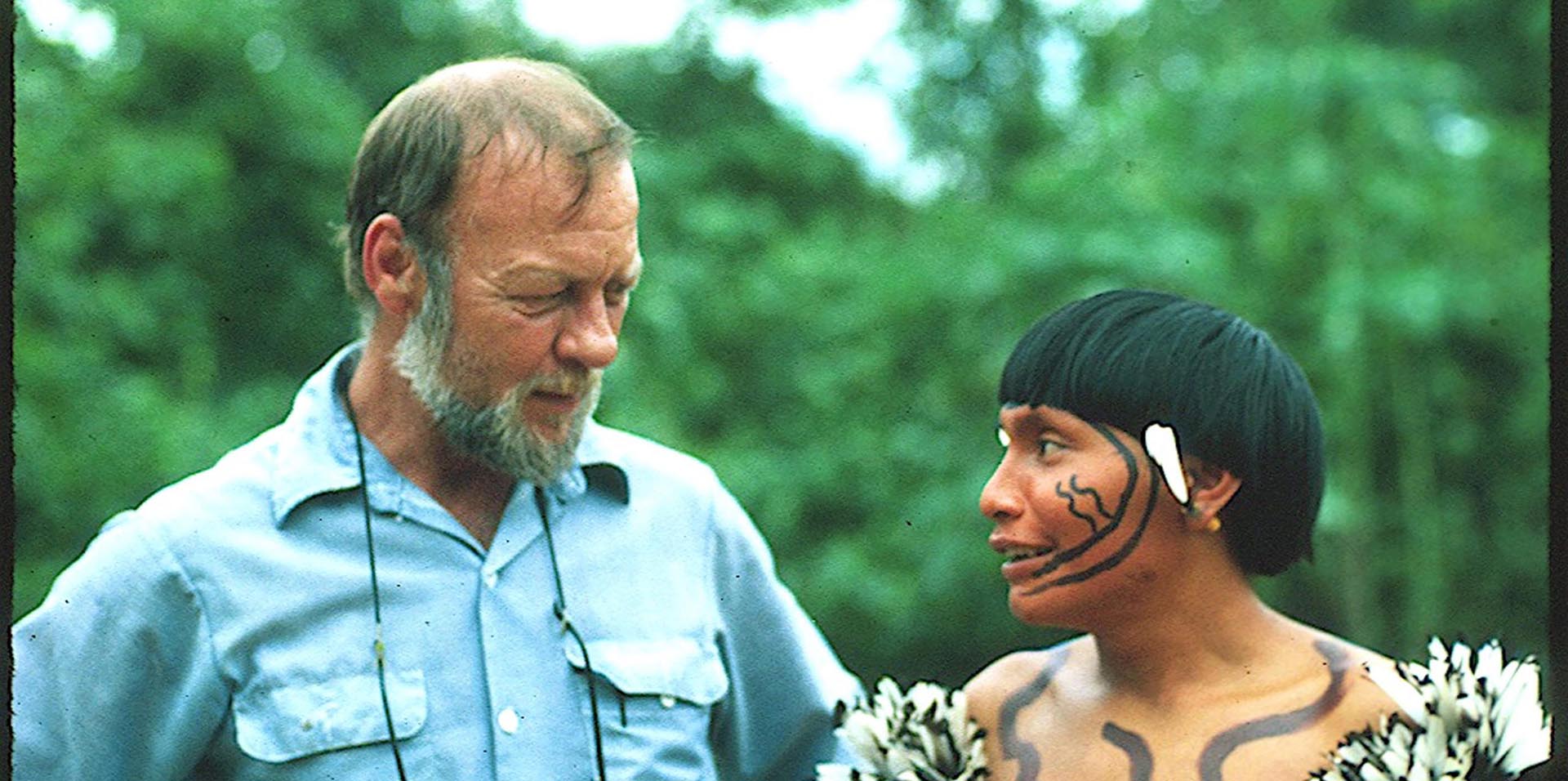Douglas W. Hume, Ph.D.
Anthropologist & Educator
Darkness in El Dorado Controversy - Biographies

The following is a collection of links and information that form biographies of several of the key players in the Darkness in El Dorado scandal. This is a work in progress, so if you have any other information that you think would be useful to post on this page, please contact me.
Timothy Asch (1932-1994) Biographies
Timothy Asch, Professor of Anthropology and Director of the Center for Visual Anthropology at the University of Southern California, was born July 16, 1932 in Southampton, New York. He was educated at a school in Southampton; New York called Putney School. His education then led him to the interest of still photography, where he served apprenticeships with Minor White, Edward Weston and Ansel Adams. After that he was forced to join the service for the Army during the Korean War. When he returned from Korea he went to Columbia University and graduated with a B. S. in Anthropology in 1959. He later went back to school and got an M. A. from Boston University’s African Studies Program. While studying at Columbia University, he worked as a teaching assistant for Margaret Mead who got him interested in the potential use of visual media for instruction. He was intrigued by this field, and that’s probably why he made this his life long passion and career. (https://web.archive.org/web/20110131104751/http://www.mnsu.edu:80/emuseum/information/biography/abcde/asch_timothy.html)
Timothy Asch, Professor of Anthropology and Director of the Center for Visual Anthropology at the University of Southern California, died in Los Angeles on October 3, 1994 after a lengthy illness. He was born July 16, 1932 in Southampton, New York and was educated at the Putney School, then served apprenticeships with still photographers Minor White, Edward Weston and Ansel Adams. After service during the Korean conflict, he graduated from Columbia University in 1959 with a B. S. in Anthropology and later received an M.A. from Boston University’s African Studies Program. While studying at Columbia University, he worked as a teaching assistant for Margaret Mead who got him interested in the potential use of visual media for instruction. This became his life-long passion and career. (https://web.archive.org/web/20070314085703/http://cwis.usc.edu/dept/elab/welcome/resume/aschobit.html)
Napoleon Chagnon (1938 – 2019) Biographies
Chagnon was a renowned ethnographer, gifted film maker, and pioneer in the application of evolutionary theory to the study of human behavior. He began his college education as a physics major at the Michigan School of Mining, but in his sophomore year he transferred to the University of Michigan and soon became an anthropology major after taking courses from Leslie White and Elman Service, both of whom would later sit on his doctoral committee. After graduating from Michigan in 1966, he taught there until joining Penn State University in 1972, with later appointments at Northwestern University, University of California Santa Barbara, and the University of Missouri. (http://www.anthropology-news.org/index.php/2019/12/06/napoleon-a-chagnon/)
Napoleon Chagnon is a Professor of Sociobiology at the University of California, Santa Barbara. He is recognized primarily for his studies on tribal warfare of the Yanomamo tribes in the Amazon Basin. He began studying the Yanomamo people in 1964 and continued to do so until 1988. During his studies, Napoleon spent time in very remote villages so he could better understand the warfare, as well as other social features of the Yanomamo. (https://web.archive.org/web/20100407182755/http://www.mnsu.edu/emuseum/information/biography/abcde/chagnon_napoleon.html) (Note: Chagnon is emeritus Professor of Anthropology not Sociobiology)
Chagnon is engaged in the computer analysis and publication of his continually growing body of data on the Yanomamo demography, settlement patterns, geographical variations, and warfare patterns over time. He continues to make annual field trips to the Venezuelan Yanomamo and is working among extremely remote new villages he contacted between 1990 and 1992. The new villages contrast markedly in intensity of warfare and other social features with villages he studied between 1964 and 1988 but are historically related to them. His current focus is on collecting additional information that will shed light on these variations. (https://web.archive.org/web/20071006175709/http://www.anth.ucsb.edu/faculty/chagnon/)
Jacques Lizot (19?? – present) Biographies
College de France-CNRS, in Paris, France (https://web.archive.org/web/20040608071129/http://www.college-de-france.fr:80/chaires/chaire1/index.htm)
James Neel (1915 – 2000) Biographies
Obituary, February 07, 2000 James Van Gundia Neel, professor emeritus of human genetics and internal medicine, died of cancer Feb. 1 at his home in Ann Arbor. He was 84. An internationally renowned scientist, Neel was a pioneer in the study of human genetics and one of the first to foresee its importance in the diagnosis and treatment of medical conditions. During his 39-year career in the Medical School, Neel established one of the first clinics to evaluate and counsel people with hereditary diseases, as well as the first academic department of human genetics in the United States. (http://www.umich.edu/~urecord/9900/Feb07_00/18.htm)
The Papers of James V. Neel James V. Neel is one of world’s premier geneticists. He has contributed to the field of human genetics as a scientist, physician, professor, consultant and administrator. He received his Ph.D. as well as M.D. from the University of Rochester in New York. He completed his residency at Strong Memorial Hospital in Rochester, New York. Dr. Neel has been affiliated with the University of Michigan, Ann Arbor for nearly fifty years. Since 1985, he has served as the Lee R. Dice Distinguished University Professor Emeritus of Human Genetics and Professor Emeritus of Internal Medicine, University of Michigan, Ann Arbor. He has served and continues to serve on the committees of a number of national and international institutes, governmental agencies and organizations. (https://web.archive.org/web/20081201220230/http://www.library.tmc.edu/abcc/Neel/Neel_intro.htm)
Patrick Tierney (19?? – present) Biographies
Center for Latin American Studies & University of Pittsburgh Patrick Tierney, author of Darkness in El Dorado: How Scientists and Journalists Devastated the Amazon-W.W. Norton & Co., 2000, is a Center Associate/Visiting Scholar in the Center for Latin American Studies (CLAS), University Center for International Studies (UCIS), University of Pittsburgh. (documents/0385.htm)